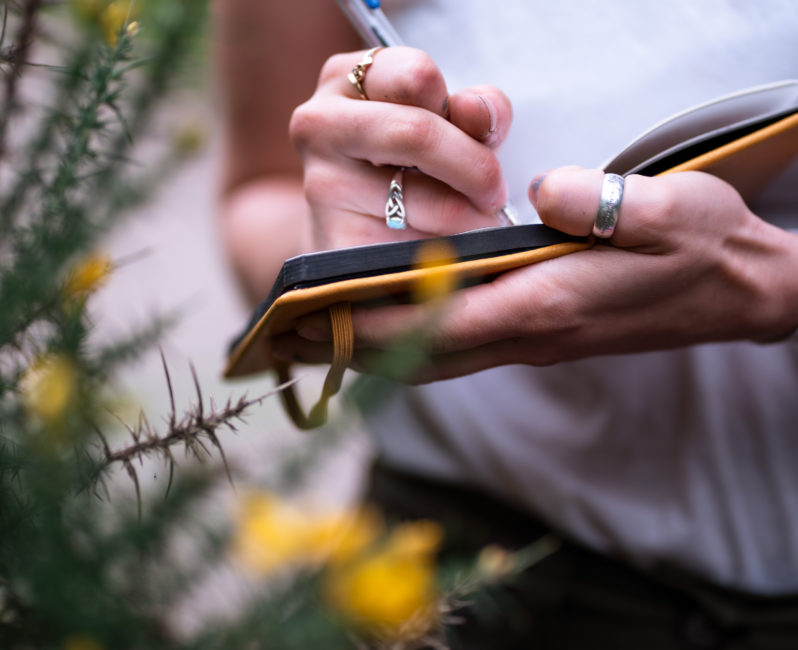The bike has the obvious ability of transporting us all in the physical space but for some it takes them elsewhere internally too.
This series is, as it states is all about about discovering the ‘External and Internal Benefits of Cycling’ i.e. the magical way it enhances and elevates the thinking process. Helping with the most simple processes right the way through to writing, researching, image making and ultimately how it is a tool for mental clarity and a healing device for the mind.
In this first issue of the series we speak with Immy, of @immycycles to discover how cycling has made a positive impact.
So firstly hello! If you could introduce yourself and tell us where you are based?
Good day to you. I’m Immy, and I am based in Chester in the great north-west of England, a place that I absolutely adore.
I wish I had something wonderfully exciting to provide as an introduction – like I had won the panceltic or had cycled the UK in a weekend or something – but unfortunately, I am just your average friend on a bicycle. I don’t compete in races, and I don’t have any sort of incredible training plan, nor do I do big multi-day bikepacking adventures. Much of my cycling is spent quite locally, and I’m a big advocate of taking things slow and understanding ‘place’, cultivating a bit of an appreciation for the things around you. In that sense, I really am very boring, although I do like to think this is part of my charm.
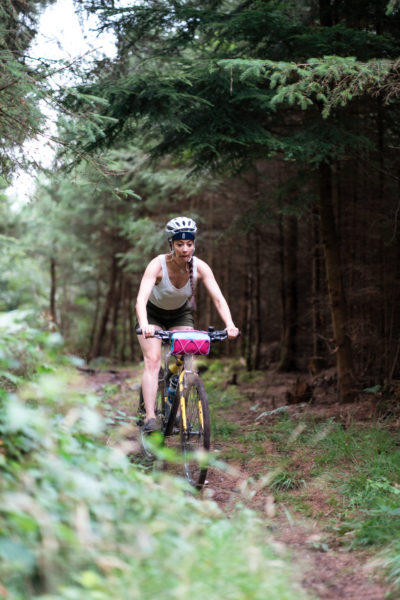
I run an Instagram account all about my very average riding, and my experiences of being an average rider, where I over-share and discuss everything from my own crippling anxiety to geology. It was started as a way of trying to make more friends really, as I found I was riding alone a lot, and wanted a way of connecting with others. It’s snowballed quite a bit over the past year, although I have managed to make a lot of friends in the process. I’m super passionate about history, science, the environment (I’ve just finished my MSc in Environmental Sustainability) and especially about women’s experiences on the bike – these are all sorts of things I talk about through the lens of cycling.
Aside from cycling though, I spend a lot of time climbing and running too – both of which I am as deeply passionate about as I am riding my bike. I sometimes write for Beta Magazine (an online women’s climbing magazine). In my day job, I work full time for a qualifications organisation, where I do a lot of strategy work pulling things apart and rebuilding them again, making lots of decisions and sometimes bossing other people around. It is quite rewarding if a bit stressful.
So ImmyCycles is your instagram handle, could you talk about how you came into cycling?
I was such a reluctant cyclist. About four or five years ago, I was seriously injured after running a half marathon. Running at the time was my lifeblood – I’d been using it as a way of coping with anxiety and stress since I was about 17 – and the severity of the injury meant that I was left unable to run. My physio at the time recommended cycling as a way of keeping fit, and I can still remember the sensation of my heart dropping like a stone. Cycling just did not resonate with me at all; it was for little kids, old ladies and middle-aged men. I didn’t know anyone who cycled, nor anyone who would be interested in taking it up with me.
One evening I begrudgingly googled something stupid like ‘women cycling’ and Katherine Moore’s blog (I always reference Katherine, and she is going to get sick of me mentioning her), alongside a woman named Alaina Becall who was about to begin cycling from Iceland to Greece, came up in the search. I was utterly transfixed by both individuals. I had no idea about this world of cycling, and truthfully, didn’t even think women could do this sort of thing. I genuinely didn’t think women did long-distance endurance adventure stuff.
For the next few weeks, I spent every day following both individuals and started saving up for a bike. It seemed so much more tangible after that, and when I got a bonus at work, I went out and bought the cheapest bike I could find. I haven’t really looked back since.
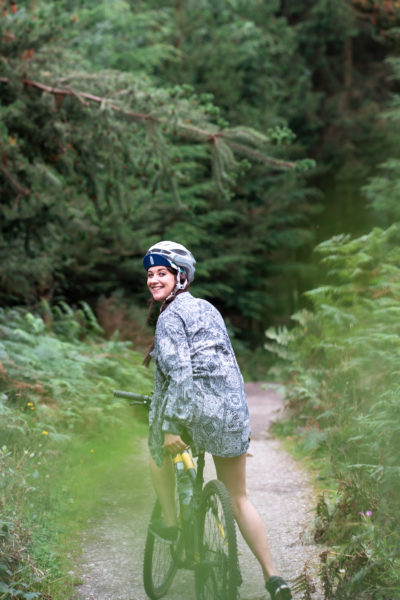
You have been selected by We Are Cycling UK as one of their 100 women in Cycling, so of course congratulations but also what does it mean to you to be recognised and celebrated as a figure in cycling?
It is ridiculously bizarre because I have been following the festival for years and genuinely didn’t ever imagine being one of those women. Especially when I see and interact with so many other people doing far more important things than me. I haven’t started a club, I haven’t put myself out there to better the industry in any way, and I’m not doing cool things all the time for people to look up to. I’d like to think though that I was nominated for exactly that reason – that I’m just ordinary and that I at least am the baseline for people to give something a go. People might look at me and think ‘oh is it really that easy? I could definitely do that’, and then that’s it. I have done something beneficial.
I once read somewhere that realism is a political act because it unites and solidifies people in experience. I have always liked that idea, so I try to be as realistic as possible with my own experiences because I don’t think I am special or unique. If I have felt a certain way, or think something, then I am sure others have felt it too and if I can share it, it reassures me that I am not alone. Maybe it will make others feel less alone too. That’s my aim with it all anyway, it won’t change the world or anything, but without sounding utterly cringeworthy, I sort of believe that if you want others to act in a certain way then you need to be acting in that way to begin with. So, I share stuff on a quiet corner of the internet.
Are you partly to thank for bikesandbirdhides? I guess the birding element is almost a natural and incidental by-product of cycling, with birds often always present, is that how it came along or did birding come first?
Ah! I am not to blame for bikesandbirdhides – that lovely instagram account and blog is the brainchild of my best friend Abi and I would recommend everyone to go and look into it. I get asked this an awful lot, as Abi is very private, whereas I am always flaunting my face over the internet – people just assume we are the same person, which sometimes it does feel like we are.
Abi and I met through instagram over a year or so ago, and actually, immycycles was a product of seeing Abi start up bikesandbirdhides. I was really struck by how she was unashamedly exploring a really niche part of her interests, and I was inspired by that bravery. Before bikesandbirdhides though, I didn’t know anything about birds. I could recognise a robin, blackbird, seagull and a heron – but that was it. The amount I have learnt over the past year is astronomical, but that has been a consequence of being taught by Abi to actually watch and listen.
Abi has taught me to really do both of those things. And to do them properly. People don’t watch and listen properly anymore, and I am not sure even she realises that she has managed to teach me this skill. I remember one specific ride where she just kept spotting stuff – stonechats and finches and all sorts – I hadn’t seen any of them and was getting really frustrated. I was looking everywhere. So, I started watching her more as we rode, and I realised she was looking up. I wasn’t looking up. And then I realised she was looking at tree lines, and onto boulders and in directions I wouldn’t have considered. I was looking around, but I wasn’t really looking; Abi was looking with an understanding of how birds move – knowing the things they like, things they don’t like, expecting them to move in ways I hadn’t anticipated. I was looking like a human would, looking for other humans. That’s when I began to spot things. I’d get frustrated I didn’t know what I was seeing – they all looked like blurry shapes to me – but Abi would sort of shrug it off without judging my ignorance. Once you stop worrying about what it is, you are a bit freer to start looking for the patterns. Every ride with Abi has been like this, and I absorb it all. It’s totally transformed the way I interact with the outdoors.
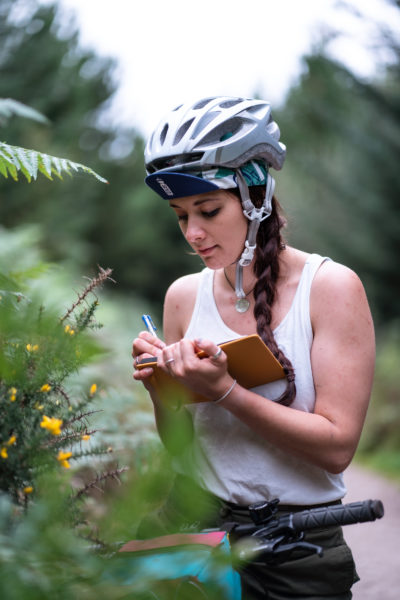
Cycling and bird watching pair together beautifully. It’s meditative and exciting, and you begin to see everything differently. The light, the season, the clouds, blurry shapes, the amount of moisture in the air, water bodies, trees, noise levels, smells, colours… all of that can contribute to what you will see or hear. A ride becomes so much more than just you on a bike when you begin to read the environment in that way, and you become smaller. It’s lovely.
With this series focusing on Journaling and the way that cycling transports the mind could you talk about what it does for you? Perhaps Journaling first.
I’ve always written, ever since I was very young, although I don’t think I have ever called it ‘journaling’. It was just something I did. I have hundreds of notebooks at home stuffed full of weird little half sentences or tiny drawings and incoherent and half-forgotten thoughts. I don’t really look back on them after I finish them.
I think writing is such an intrinsically human thing to do. No other species tries to take a very subjective thing – such as experience or feelings or thoughts – and then try to recreate them in little squiggly markings that have some sort of weird agreed meaning. And this is precisely what I love about writing; playing with words and language and noises of syllables and trying to get as close as possible to that weird intangible thing you have just experienced. How do you explore that feeling of walking through a very still woodland on a late summer evening? How would you depict the noise your shoes make as you move over tree roots beneath a carpet of decaying pine needles? That dull hollow sound you can hear? I take my little notebook on my rides even if they are short because it’s nice to take that moment to figure those things out while you are there experiencing them. I don’t show it to anyone.
I know some people like to explore their feelings in journals, but I much prefer messing with words and painting with them. I like getting close to feelings through little fragments of wording choices. Sometimes I will note down things that I have snatched from people’s conversations as I have passed them, and it always seems funny reading them back, because their word choice often says a lot about them, and it is interesting to look at that out of context. Sometimes it is easier to process thoughts through writing when you aren’t writing about what you are thinking of. I think part of it is having that control over the letters and the words – this is just for me, and I can create my own little world from it.
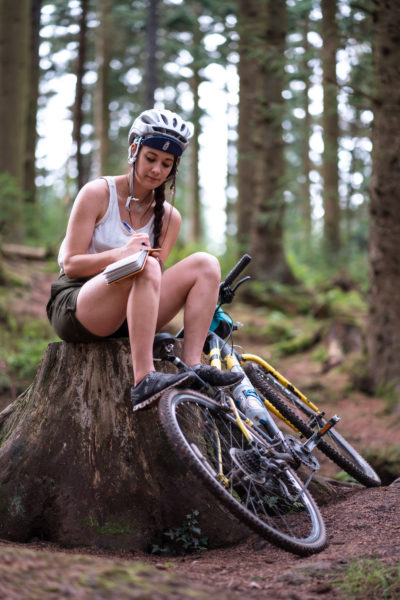
And what about cycling? Has it helped in a similar way?
I do three sports regularly (climbing, running and cycling) and I find each one does something very different to my mind. Running is the only time my brain will fall silent. I’m not subject to that constant background chatter and gnawing insecurity. Everything stops. Climbing feels a lot more creative – almost like dancing – very cathartic and completely liberating.
Cycling, however, is super helpful for working through problems in my mind. I think maybe it is the rhythm of the pedals or something, but I like to ride when I have a thick thorny problem I need to chew over, and by the end, I have usually untangled the mass. It also feels incredibly powerful, and I always feel very strong and capable when riding. Maybe that’s why it is so easy to work through problems because if you feel powerful and resilient anyway, your problems can become a lot smaller.
Any closing points? Or things you would like to share?
Sometimes when I am very anxious in a social situation, I will automatically begin humming the Jurassic park theme tune.
Also, this is my favourite weekend route, simple, easy and beautiful.
Image Credits – Nat Moore
If you have a story to share, maybe about how cycling helps your creative process, or takes your mind to places new we would love to hear about it.
Email to [email protected]
Last modified: 1st September 2021
